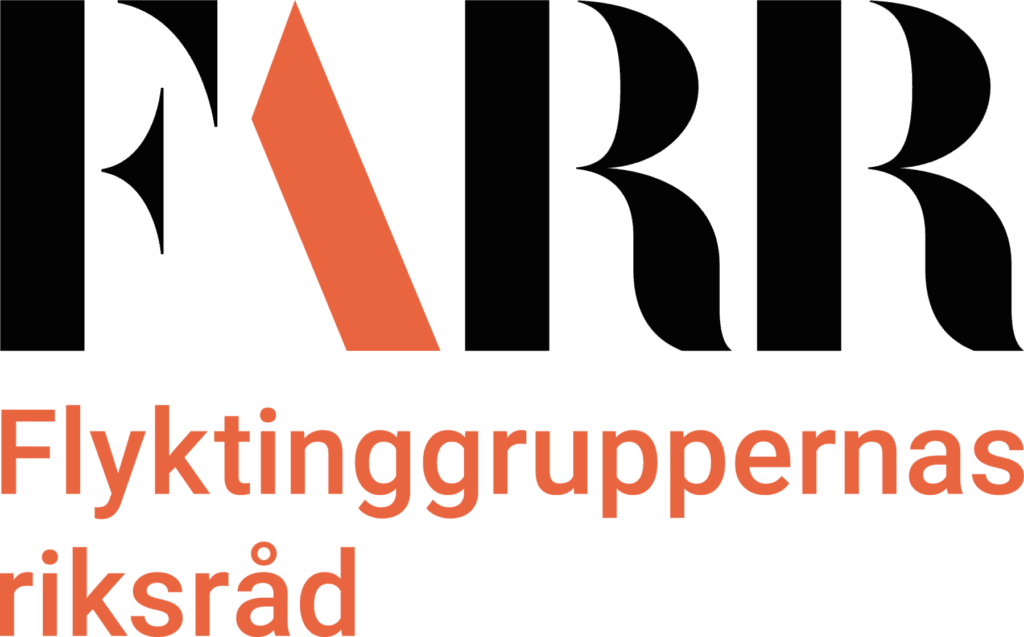We protest against the Tidö Agreement and the government’s policy that will exclude even more people. Many want integration to improve and society to become more inclusive. But in the Tidö Agreement, the new government presents no such thing, only a series of proposals to further restrict refugee policies that have already been changed since 2015 and thus further restrict rights that are already restricted.
These are some of the proposals:
- All asylum seekers will be housed in transit centres – and they will pay for their own reception if possible
- Asylum seekers’ rights and reception conditions to be reduced to a minimum
- Increasing the evidentiary requirements for asylum seekers to obtain protection – while limiting the right to interpretation and to a lawyer
- Residence permits for reasons of non-enforceability of deportation should only be granted if the hindrance is permanent
- The statute of limitations for expulsion decisions to be extended from four years or abolished
- More sanctions and coercive measures should be introduced to prevent people from absconding and municipalities should be prohibited from helping undocumented migrants
- Limit family migration so that fewer people who have been granted residence permits are reunited with their families
- Dependency requirements for family members to be tightened and possibly also used for extensions
These are just a few examples of our new government’s refugee policy. But it is not enough. Those who have been given protection should not feel safe even with a residence permit.
- Permanent residence permits for people in need of protection will be abolished for all or certain groups
- Residence permits should be revoked as soon as possible, when the original reason no longer exists
- Revocation of residence permits on the grounds of protection needs to be facilitated by automatic procedure or other measures
- Encouraging return also among residents
- Raising citizenship requirements and introducing a declaration of loyalty or similar
- Removing supplements for families with children from the allowance for newcomers during settlement
- Qualification should be introduced to benefit from other rights as a resident in Sweden, such as child benefit, parental benefit, assistance allowance, etc.
- The right to an interpreter, for example in health care, should be restricted
That is not all. The Tidö agreement between the government parties and the Sweden Democrats also contains a host of restrictive measures concerning work permits, deportations, border controls, surveillance, support. We note a few proposals that are intended to improve integration – access to Swedish for foreigners’ classes and a Swedish language preschool for new arrivals. But in this context, when the overall aim is to keep the number of asylum seekers and new arrivals down, even such requirements are perceived as threatening.
Human rights are not protected if they are not applied. Sweden should stand up for human rights. Now we have a government that is trying to undermine them.
We know that the proposals in the Tidö Agreement are real and frightening for many. But we want to take this opportunity to tell anyone who feels threatened that these proposals have not yet become law. It takes time to legislate and these proposals will be challenged. Many will protest. Some of the proposals will not be implemented because they are contrary to EU laws and international conventions to which Sweden is a signatory. It is a serious situation, however, which is why we need to protest before the proposals become reality.
The government portrays immigration as Sweden’s biggest problem – despite an urgent climate crisis, wars in the region, an energy crisis and a recently concluded pandemic. How is the homeland to be defended with a government that distrusts such a large part of the population?
When the new Minister for Migration is asked to defend the policy, she presents the number of asylum seekers to Sweden as a systemic threat and repeats that 163,000 applied for asylum in 2015. But she does not say that the previous government already introduced a series of restrictive measures for asylum seekers and their families then. She does not say that the EU’s border policy has already reduced the number of asylum seekers to a fraction of 2015. Last year, 11,000 people sought asylum in Sweden, not 163,000. Nor does the migration minister say that most asylum seekers are rejected.
In the Tidö Agreement, the attacks on asylum seekers and refugees have become an end in themselves. We see no explanation for the government wanting to split up more families, revoke residence permits and deport people who have already been given protection – just because it might be possible. Now we are not talking about criminals, but about anyone who has been granted a residence permit in Sweden for studies or work and who contributes to society – well, the vast majority do, many in industries where employment needs are enormous. To still want to get rid of as many as possible is nothing less than xenophobia.
To be forced to flee and start life again in a distant country is difficult. People speak other languages and do things in other ways. You may be far from family and friends you used to have support from. Some may try to take advantage of your more vulnerable situation. These are real problems, but problems that can be dealt with, if the will is there. But when the government tells you that you will never be able to stay permanently and at the same time punishes you for not being integrated, it will be more difficult to be new in Sweden. It will be worse for many people.
Many asylum seekers and those facing deportation who have nowhere to return to already live far below the subsistence level. They are at the mercy of unscrupulous employers and other criminals if they do not receive support from civil society.
We protest against the Tidö Agreement and the government’s policies that will create further large groups of marginalised persons.
At the same time, we pledge that we in civil society will continue to take our responsibility and do our best to stand together when needed, to protect those who need protection and stand up for our common society where the state fails.
Signed:
Flyktinggruppernas Riksråd, FARR (The Swedish Network of Refugee Support Groups)
Etikkommissionen
IMÄI (Ingen människa är illegal) Göteborg
IMÄI Trollhättan/Vänersborg
IMÄI Stockholm
IMÄI Östersund
Nätverket #femövertolv, Östersund
Timrå församling, Svenska kyrkan
MiM Kunskapscentrum
Frivilliga Familjehem i Österåker
Sundsvalls Asylkommitté
Stöttepelaren
Hudik för Alla, mångfald och Integration
Borlänge Asylkommitté
Stoppa utvisningarna till Afghanistan!
Föreningen Afarvänner i Sverige
Refugees Welcome Karlstad
Refugees Welcome Sjuhärad
Refugees Welcome Malmö
Refugees Welcome Sverige
Kampanjen Håll ihop Sverige
Alsike kloster
Frivilligorganisationen Agape Göteborg
Musiker mot rasism
Föreningen Hitta hem i Kumla
Världen i Värmland volontärnätverk
Flyktinggruppen i Falun
Nätverket ”Nu är det nog!”
Aktion i Umeå för Afghanerna
Föreningen NU i Linköping
Kvar i Eksjö
Föreningen folkbildning för frihet – Eduardo Madariaga
Solidaritet Nordost
Jimmy Jonsson, Ordförande Asylgruppen Norrköping
Marta Muñoz, rådgivare i Migrationsfrågor, NybyVision
Brita Melin, Diakoniassistent Skellefteå Pastorat, Kågedalens församling
Pär-Magnus Möller, Kyrkoherde i Värnamo pastorat
Linda Waldemar, Svenska Kyrkan i Linköping
Bengt Sandqvist, flyktingansvarig, Ansgarskyrkan i Västerås

